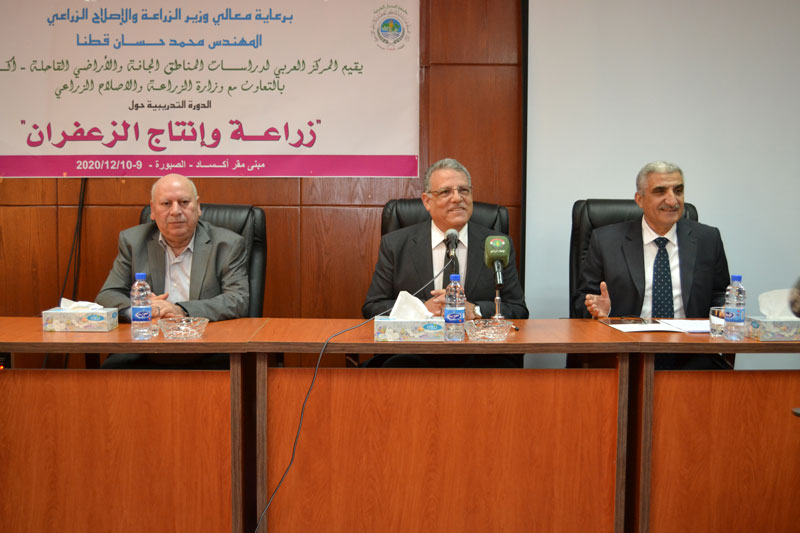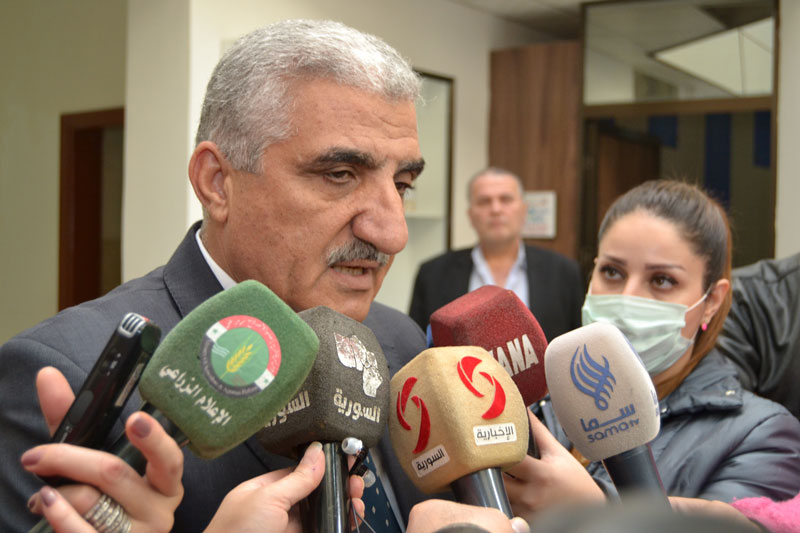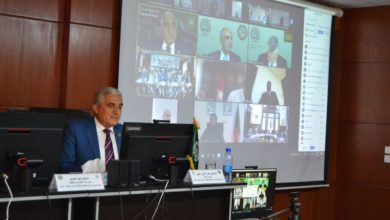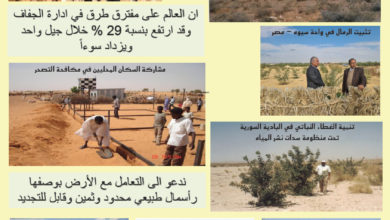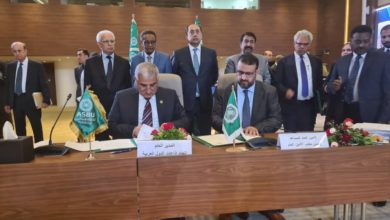Ministry of Agriculture and ACSAD training on Saffron production
Today, at the headquarters of the Arab Center for the Studies of Arid Zones and Drylands (ACSAD), the activities of the training course on “Saffron cultivation and production” started in the presence of the Minister of Agriculture and Agrarian Reform of the Syrian Arab Republic, Engineer Mohammad Hassan Qatna, and Mr. Nasr Muflahi, the Director for the Office of the Spanish Agency for Action Against Hunger(AAH-Spain), Mr. Ahmed Saleh Al-Ibrahim, President of the General peasants Union, Dr. Rama Aziz, Head of the Syrian Agricultural Engineers syndicate, Dr. Majida Muflleh, Director-General of the Syrian General Commission for Scientific Agricultural Research, and a large crowd of Syrian and Arab experts and researchers.
In a speech at the session’s opening, the Minister of Agriculture and Agrarian Reform, Engineer Mohammad Hassan Qatna, praised the serious and beneficial cooperation between the Ministry of Agriculture and ACSAD Organization in various fields, stressing the important role played by ACSAD to achieve sustainable Arab agricultural development. He noted the recent upgrade achieved by ACSAD recently at applied scientific performance level, the high confidence it has gained, and the remarkable scientific position it has reached in all of its work fields, noting that “the practical effectiveness and high scientific competence of ACSAD organization motivate us to cooperate with it continuously.”
He stressed the importance of providing all possible assistance to low-income families living in marginal areas and improving their income in our beloved Syria. He noted that the efforts exerted by ACSAD and its Director-General Dr. Nasr Edin Obaid to spread the cultivation of Saffron plant in cooperation with all the parties related to the research and production of Saffron and agricultural extension from the public and private sectors, noting the important medical features and qualities of this plant. Besides its great material revenues, it is one of the most expensive spices globally, which people have called “red gold.”
He noted that ACSAD is holding this session to provide the opportunity for trained engineers to form a scientific and applied knowledge base about this plant and for participated researchers and specialists in exchanging experiences and the latest information. He was stressing the need to reach practical results that will direct efforts toward more success in resettling and spreading the culture of Saffron cultivation in the Syrian Arab Republic, emphasizing the social and economic development importance of this crop.
For his part, the Director-General of the Arab Center (ACSAD), Dr. Nasr Edin Al Obaid, said that ACSAD is the Arab house of expertise and the agricultural research and development projects incubator in the agricultural sector in the Arab countries. Continuously tries to offer new agricultural technologies that serve agricultural development and improve farmers’ economic situation. Particularly in the marginal areas the most in need of such technologies.
He pointed out that ACSAD is spreading Saffron cultivation in the poor agricultural areas as small rural family projects to increase their income and to operate as much as possible of the labor force in coordination with the Ministry of Agriculture, the General Union of peasants, the Syndicate of Agricultural Engineers, Agricultural Research, the Faculty of Agriculture of Damascus University, and the private sector. He explained that the indicators so far are very positive. The quality of the Syrian produce is required externally, and noting that the Spanish organization of Action Against Hunger (AAH-Spain) is considering financing a large-scale development project within the framework of small projects for disseminating Saffron cultivation.
Dr. Obaid stressed that our beloved Syria, which has and still provided much support to ACSAD, is always in need of serious work to contribute to its agricultural production development, support its farmers, and concern for agricultural technicians and engineers’ training, and transfer of modern and useful technology to them.
The Arab Center (ACSAD), in cooperation with the Ministry of Agriculture and Agrarian Reform of the Syrian Arab Republic, is holding this session for the benefit of 20 agricultural engineers from the staff of the Syrian General Commission for Scientific Agricultural Research, which lasts for two days.
The activities of the session include several topics, including the cultivated Saffron, the techniques of cultivating and producing Saffron, the research results of the Syrian Saffron, the production and marketing of the Syrian Saffron, a tour of the Saffron experience in ACSAD, and a field tour of the experiments of the cultivation and production of the Saffron in the Agricultural Scientific Research Center in Damascus-Sergaya.
The training is conducted by selected specialized experts from the ACSAD organization, the General Commission for Scientific Agricultural Research, and the private sector with specializations.
